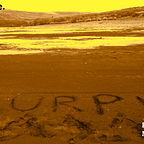Scientism and Science’s Unlimited Domain
The logical positivist Rudolf Carnap (1891–1970) deemed science’s domain to be unlimited. His position perfectly captures what critics later called scientism. So it must be said that the term “scientism” is often used as little more than a term of abuse… This essay asks questions about science’s domain. It’s also about whether or not many non-scientific questions (at least the debated ones) can ever be answered. In other words, are many religious, philosophical, aesthetic, ethical, etc. questions unanswerable? Alternatively, are my own questions about questions an implicit (perhaps explicit) reversion to (some new kind of) logical positivism?
“When we say that scientific knowledge is unlimited, we mean ‘there is no question whose answer is in principle unattainable by science.’”
— Rudolf Carnap
Many people are shocked by the position advanced by Rudolf Carnap (1891–1970) above. Or at least they’re shocked by similar positions expressed by other philosophers and scientists.
Some philosophers are shocked too.
William P. Alston, for example, wrote (in his paper ‘Yes, Virginia, There is a Real World’) that it was “a piece of outrageous imperialism” to believe (or claim) that scientific…
